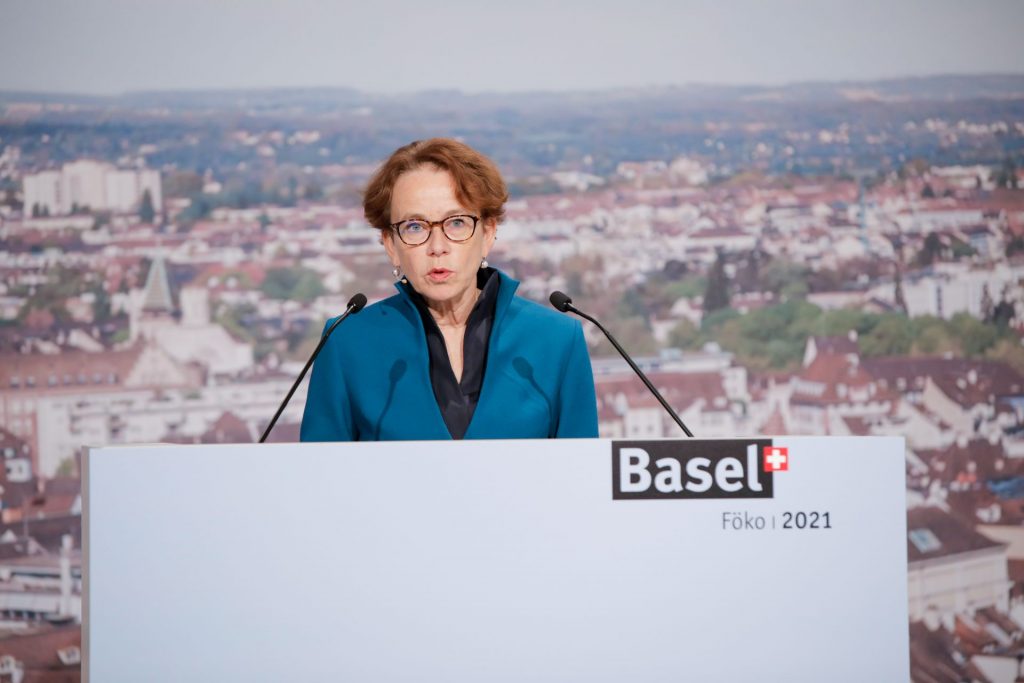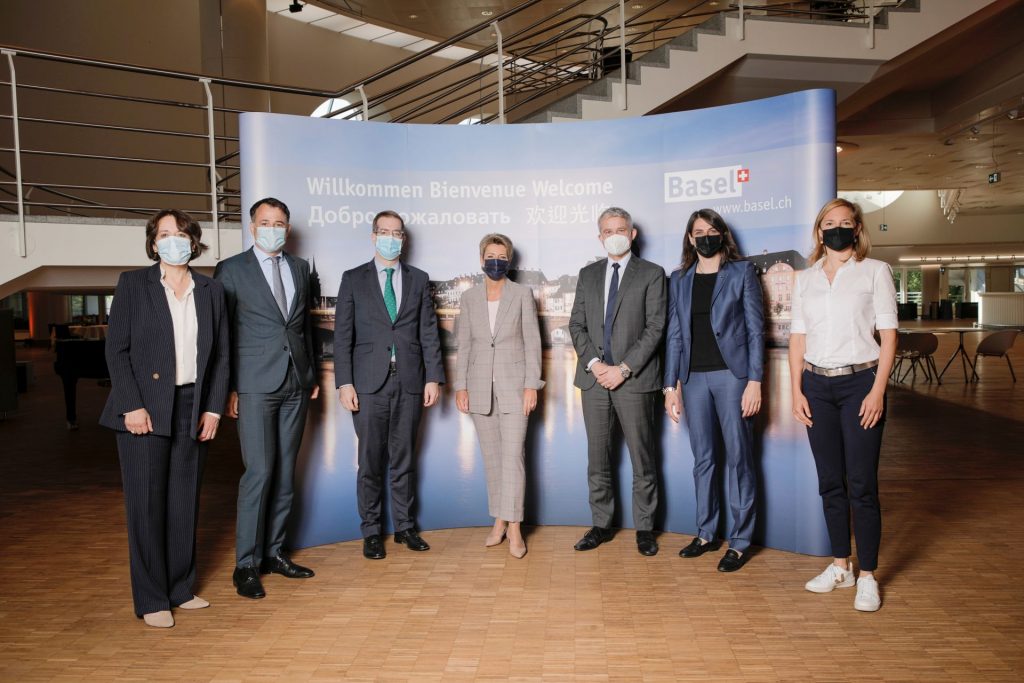The “Basel Declaration” for the federalism of the future
Following the similar profession of will in Montreux in 2017, the Confederation, cantons, cities and municipalities have signed a new pact for the future
The sixth edition of the National Conference on Federalism, organized on May 27 and 28 in the Canton of Basel City, five years after the previous similar event, is the source of a stronger commitment to the institutional structure of the Helvetic Confederation, understood as the condition of a set of autonomous entities, but linked together by the bond of a pact (in Latin, precisely, foedus, “pact, alliance”).
The 2017 Montreux Declaration strengthened understanding and adherence to federalism. The Basel 2021 Declaration consolidates this understanding and emphasizes that federalism is constantly evolving.
Like direct democracy, federalism is part of Switzerland’s DNA, makes it strong, and ensures a rich economic, social, and cultural diversity for the country and its inhabitants.
“Federalism Prize” 2021: finalists selected

The heart remains the division of tasks at three state levels
Its key functions are to allocate tasks to three state levels (Confederation, cantons and cities or municipalities) in order to find solutions in line with needs.
This makes it possible to increase innovation capacity and competitiveness while protecting linguistic, cultural, religious and geo-topographical minorities.
In this way, federalism promotes Switzerland’s understanding and internal cohesion.
Switzerland’s growing interrelationship with Europe and the world, as well as cross-border developments, are triggering a new debate on the strengths and weaknesses of federalism.
In addition, the coronavirus pandemic and its considerable social and economic impact are presenting a tough test.
Switzerland and the “fantastic four” of direct democracy
The ethics of competitiveness and the spirit of federalism
Waldstätte and the “forest” cantons at the dawn of Switzerland’s…

Proven complicated and slow procedures during the pandemic
With regionally appropriate solutions, federal structures proved their worth in essential areas such as health care and economic support. However, weaknesses also emerged.
Procedures proven in normal times sometimes proved too complicated and slow during the pandemic.
In addition, insufficient coordination and communication caused uncertainty.
This experience provided an opportunity to adapt federalism even better to current and future challenges.
“Prize for Federalism” 2021: finalists selected

The “Basel Declaration 2021” as approved
With the Basel Declaration, the Confederation, the cantons, the cities and the municipalities express their support for the development of a future-oriented federalism and commit themselves to the following points:
1. We are committed to a vibrant federalism, with the aim of ensuring the functioning of the three state levels for the benefit of the population, even in the face of important internal and external dynamic developments.
2. We ensure the future sustainability of federalism by further developing and strengthening it.
To this end
3. We shall preserve and promote the closeness of the population to political institutions and mutual understanding;
4. we ensure forward-looking, cross-sectoral cooperation between all levels of government, even in times of crisis;
5. we use federalism as a laboratory at the cantonal, communal and municipal levels to be able to react to larger trends, developments or crises;
6. we strengthen the understanding of functional areas and border regions in order to adapt federalism to the living conditions of the population in these areas and to enable neighborhood solutions;
7. we emphasize the importance of local and regional structures that can intervene to strengthen federalism in meeting current and future challenges.
Swiss monuments? A “hidden” treasure to be enhanced…
Athenian democracy? Revive between Glarus and Appenzell…
The Europe of small States and a federalism barely sketched out…







